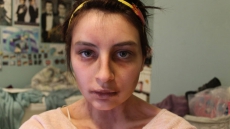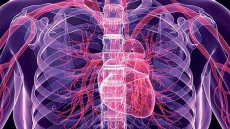Scientists have suggested that Botox, the popular wrinkle eraser, could also be effective in treating stomach cancers.
Through their study, the scientists have shown how the drug slows cancer growth by eliminating the signals sent by nerves that are linked to cancer stem cells.
Led by Duan Chen, professor at Norwegian University of Science and Technology, and Timothy Wang, professor at the Columbia University, the study has been published in the US journal Science Translational Medicine, Xinhua reported.
"We believe this treatment is a good treatment because it can be used locally and it targets the cancer stem cells," said Chen. "The Botox can be injected through gastroscopy and it only requires the patient to stay in the hospital for a few hours."
The procedure is also less toxic than most standard cancer treatments, less expensive and has hardly any side effects, he added.
Though the procedure has been tested on mice as yet, researchers will soon start testing it on humans.
According to Chen, the study shows that nerves control cancer stem cells. "We found that by removing the effect of the nerve, the stem cells in the cancer tumor are suppressed, leading to cancer treatment and prevention."
Researchers tried four methods to cut the connection between the nerves and the tumor. "... we found that the anti-cancer effects were remarkable, especially with local vagotomy or by injecting Botox. It actually surprised us. The finding that Botox was highly effective was particularly exciting," Chen said.
Botox, made from a toxin produced by the bacterium Clostridium botulinum, is well-known as a beauty treatment. But it is also used for different medical indications.
The promising results from this study have led to an initiation of a phase II clinical trial for patients with stomach cancer in Norway.
Researchers believe the Botox treatment could be an additional treatment for patients who have inoperable stomach cancer, or patients who have received chemotherapy but no longer respond to such therapy.
It could also be considered in patients who, due to toxicity of chemotherapy, cannot be offered chemotherapy treatment or who, after detailed information about chemotherapy, still do not want such treatment.
The nerve-tumor growth connection could also occur in other solid tumors, such as in prostate cancer, but more research was needed to identify the precise nerves involved, which were expected to vary from organ to organ and tumor to tumor.





